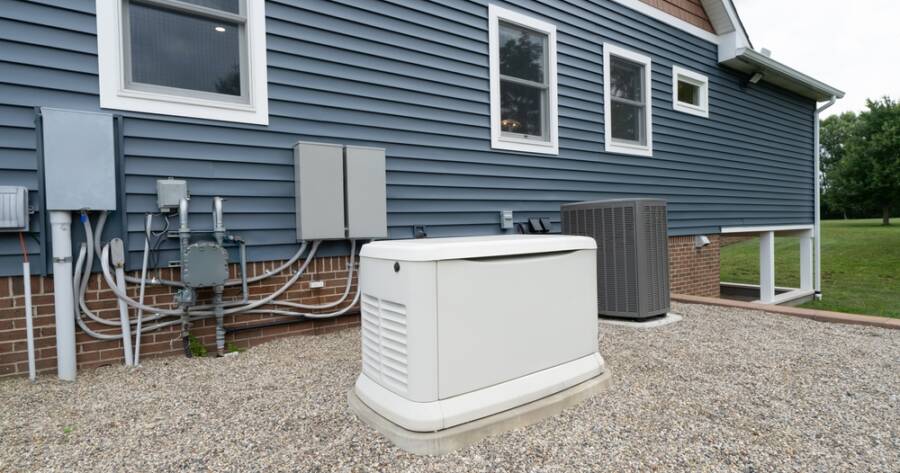Whole house generators provide essential backup power during outages, a growing necessity amid frequent extreme weather events. Understanding the costs, options, and installation specifics is crucial for homeowners making this investment. Evaluating generator types, long-term maintenance, and professional guidance ensures a reliable power solution that aligns with budget constraints and enhances property value.
Whole House Generators: Costs, Options, and Essential Guide for Homeowners
Whole house generators, also known as standby generators, offer a reliable backup power solution during outages, ensuring home functionality and security. With the increasing frequency of extreme weather events and power interruptions, many homeowners are investing in these systems to maintain normalcy when the grid fails. However, the decision to install a whole-house generator involves understanding the associated costs, available options, and the long-term value such an investment can provide.
Understanding the Costs of Whole House Generators
The initial cost of a whole house generator can vary widely based on the size and power capacity of the unit, ranging from about $1,538 to $20,000 or more, depending on the make and model. Small generators, suitable for limited power needs, are on the lower end of the spectrum, while larger units capable of powering an entire home cost significantly more due to advanced features.
Installation expenses add another layer to the overall cost, typically ranging from $18,000 to $28,000, depending on factors such as labor rates and permitting requirements in the homeowner’s area.
Exploring Your Whole House Generator Options
The U.S. whole-house generator market offers reliable options across a wide price range, depending on size, brand, and fuel type. Entry-level systems from companies like Champion and Cummins generally start around $3,500 to $5,000, while mid-range models from Briggs & Stratton and Cummins often cost between $4,000 and $8,000.
Premium units from Generac—known for advanced automation and full-home coverage—can exceed $12,000 once installed. According to sources such as Cummins, The Spruce, and CostHelper, natural gas remains the most popular fuel for residential standby systems due to its reliability and convenience, while solar-powered alternatives, though more expensive upfront, may offer long-term savings and environmental advantages.
Installation Considerations
Installing a whole house generator involves not just the unit itself but also the labor and additional components like transfer switches and concrete pads. The complexity of this setup can increase if additional infrastructure, such as a gas line or propane tank, is necessary, further raising the costs.
A realistic total installation cost estimate, factoring these aspects, generally falls between $7,000 and $15,000, depending on specific requirements. Local permit fees, impacted by the area’s building codes, are another consideration.
Maintenance and Operation Costs
Long-term maintenance is essential for the efficient functioning of whole-house generators. Owners should budget for regular service, which includes oil and filter changes, battery checks, and comprehensive inspections to ensure operational reliability.
The operational costs, tied to the fuel type, also vary accordingly, with natural gas being more economical in the long run compared to diesel. Furthermore, professionals recommend biannual maintenance to prolong the generator’s lifespan to up to 20 years, a worthwhile consideration to enhance property value.
Choosing the Right Generator
Selecting the right whole house generator necessitates understanding your home’s specific power needs, which can be determined by calculating the required wattage for essential appliances. Homeowners should consult with professionals to conduct a thorough evaluation of their home’s electrical layout and assess local installation services. This ensures compatibility between the chosen generator and the home’s existing electrical system, making the investment more economical while accommodating future load expansions.
Learn More About Whole House Generators
Whole-house generators represent a robust solution for homeowners looking to secure an uninterrupted power supply during outages. By investing in a reliable system, homeowners enhance their property value, safety, and comfort, especially in regions prone to frequent power disruptions.
Understanding the full scope of costs—including purchase, installation, and ongoing maintenance—arms homeowners with the knowledge to make informed decisions, ensuring they select the best generator to meet their specific needs and budget constraints. For those considering this investment, professional evaluations and exploring diversified options can yield cost-saving opportunities through rebates and seasonal discounts, making this essential home improvement project more attainable.
Sources
In-depth cost breakdown for whole house generators
Factors affecting installed costs
Detailed guide on selecting a generator

